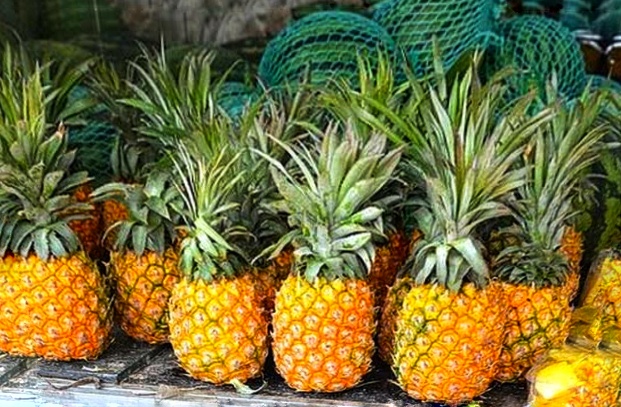Food science has the understanding that it is a scientific discipline that applies the basics of biology, chemistry, physics, and engineering
Food science: The Green Revolution
Is it important to study food? The answer is yes it is very important. Why? To answer that, let's start with the idea of the Green Revolution.
The Green Revolution, which was born in the 70s, is also known as the agrarian revolution, which is a change in the way of farming from the traditional way to a modern way to increase agricultural productivity. Another definition states that the green revolution is a revolution in grain production from scientific discoveries in the form of new superior seeds from varieties of wheat, rice, corn which have an impact on high yields.
Idea from Thomas Robert Malthus (1766-1834)
The goal of the green revolution is to increase agricultural productivity by means of research and experimentation of superior seeds. The idea of the green revolution stems from the research and writings of Thomas Robert Malthus (1766-1834) who argued that "Poverty and destitution are problems faced by humans caused by the imbalance of population growth with increased agricultural production.
Very fast population growth is calculated using a geometric series (1, 2, 4, 8, 16, 32, 64, 128, etc.), while the increase in agricultural production is calculated using an arithmetic progression (1, 3, 5, 7, 9, 11, 13, 15, etc.)". Malthus also said that population growth was much faster than food.
As a result, one day there will be a big difference between the population and the necessities of life, which means that humans can face the threat of starvation. The influence of the writings of Robert Malthus, appears:
- Movement to control population growth by controlling the number of births;
- Business movement to find and research superior seeds in agriculture. The development of the Green Revolution also affected Indonesia.
Efforts to increase Indonesian agricultural productivity are carried out in the following ways:
- Agricultural Intensification Agricultural intensification is an effort to increase agricultural production by applying the post-farming formula (soil cultivation, selection of superior seeds, fertilization, irrigation, and pest eradication).
- Agricultural Extensification Agricultural extensification is an effort to increase agricultural production by expanding agricultural land, usually outside Java.
- Agricultural Diversification Agricultural diversification is an effort to increase agricultural production by diversifying crops, for example with an intercropping system (between rice fields planted with long beans, corn, and so on).
- Agricultural rehabilitation Agricultural rehabilitation is an effort to increase agricultural production by restoring the productivity of agricultural resources that are already critical.
In addition to agricultural diversification, the government is also promoting food diversification so that people do not only depend on one type of food, but also have a variety of choices (alternatives) for various foodstuffs. In Indonesia, food diversification is intended to vary the consumption of Indonesian people so that they are not focused on rice.
The definition of food diversification
The definition of food diversification is contained in Government Regulation no. 68 of 2002 concerning Food Security. Food diversification is intended not only to reduce dependence on certain types of food, but also to achieve a variety of nutritional compositions so as to ensure an increase in the nutritional quality of the community.
Based on these food problems, it is important to study food so that we can utilize all kinds of resources that our country has with the help of existing technology so as to reduce hunger as much as possible. Dahrul Syah (2011) states that the human need for healthy, nutritious, and safe food requires a comprehensive mastery of supporting science.
Changes in lifestyle and food supply patterns also demand new developments in food management. Food Science and Technology must play an active role in directing this change for the better.
Food science has the understanding that it is a scientific discipline
Food science has the understanding that it is a scientific discipline that applies the basics of biology, chemistry, physics, and engineering in studying the properties, causes of damage and principles in food processing, while food technology is the application of the application of food science from post-harvest to food. taking into account aspects such as development, handling, processing, preservation to marketing of food ingredients without neglecting the assessment of quality, nutritional value, and public health in order to support their welfare.
So it can be concluded that food technology is a scientific discipline that applies technology regarding food processing from post-harvest to serving as a dish to obtain benefits and increase its value.

